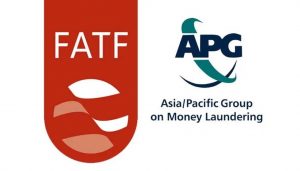Daily Current Affairs for Government Exams:
Today Current Affairs: 13th October 2020 for UPSC IAS exams, State PSC exams, SSC CGL, State SSC, RRB, Railways, Banking Exam & IBPS, etc
Table of Contents
Contents:
- Leave Travel Concession (LTC) voucher scheme
- Asia/Pacific Group on Money Laundering (APG):
- Nobel Prize in Economics::
- “The Human Cost of Disasters 2000-2019”
- Rashtriya Kamdhenu Aayog:
- Other important current affairs:
1.Leave Travel Concession (LTC) voucher scheme:

The government has announced a twin set of measures to boost consumption demand and capital expenditure (Capex), which are estimated to result in quick spending of more than Rs. 1 lakh crore by March 2021.
- These measures are the Leave Travel Concession (LTC) voucher scheme and a festival advance scheme.
- Also, measures have been announced to step up Capex by the Centre and the states.
- Aim: Supply constraints in the economy have eased over recent months, but consumer demand remained affected and these measures aim at advancing consumer spending and Capex.
- Capex steps are “directly linked to an increase in economic output given their high multiplier effect”.
- The earlier announced Atmanirbhar Bharat package addressed the requirement of essential goods for needy sections of the society and now these measures aim at promoting consumption of high-value items by those employees whose salaries and jobs have not been affected by the Covid-19 pandemic.
- With the participation of the private sector, these will stimulate growth in the economy by advancing the consumption of non-essential, relatively high-value goods and services in the economy.
Leave Travel Concession Voucher Scheme:
Leave Travel Concession:
- Central government employees get LTC in a block of four years, one each to a destination of choice and home town or two for home town.
- Under this, the air or rail fare is reimbursed as per pay scale/entitlement.
- Also, leave encashment of ten days (pay+dearness allowance) is paid.
- However, employees will not be able to avail of the LTC in the 2018-21 year block due to the ongoing pandemic and this is where the LTC will benefit government employees.
- In lieu of one LTC during 2018-21, employees will receive the cash payment.
- There will be full payment on leave encashment and fare will be paid as per three slabs depending upon the class of entitlement. Further, there will be no tax on fare payment.
- An employee opting for this scheme will have to buy goods and services worth three times the fare and one time leave encashment, and do so before 31st March 2021.
- The money is to be spent on goods attracting Goods and Services Tax (GST) of 12% or more and only digital payments will be allowed. Also, employees will have to provide the GST invoice.
- If the amount is not spent then the employee will have to pay tax as per the marginal tax rate on the LTC component.
- The same benefits will be available to private-sector employees if the employers decide to offer the scheme to their employees and they decide to avail it.
2. Asia/Pacific Group on Money Laundering (APG):

Noting that Pakistan’s measures against money laundering and terror financing “is not yet sufficient to justify a re-rating”, the Asia Pacific Group of FATF has retained the country on its ‘Enhanced Follow-up’ list.
- This was the first Follow-Up Report on Mutual Evaluation of Pakistan released by the Asia-Pacific Group (APG).
- Pakistan’s progress on the 40 FATF recommendations on the effectiveness of anti-money laundering and combating financing terror (AML/CFT) system largely remained unchanged — non-compliant on four counts, partially compliant on 25 counts, and largely compliant on nine recommendations.
- The APG Mutual Evaluations is a peer-review system to determine whether countries meet the compliance standards for money laundering and terror financing.
- After a country submits a Mutual Evaluation report, APG members can decide to place a member either through regular or enhanced follow-up.
- A country put under enhanced follow-up has to send four reports of compliance the following year.
Background:
- FATF had placed Pakistan on its grey list in June 2018 and asked Islamabad to implement a plan of action to curb money laundering and terror financing by the end of 2019 but the deadline was extended later on due to the COVID-19 pandemic.
The Asia/Pacific Group on Money Laundering (APG) is a FATF style regional inter-governmental (international) body, the members of which are committed to implementing international standards against money laundering (AML), the financing of terrorism (CTF), and financing the proliferation of weapons of mass destruction.
- APG was founded in 1997 in Bangkok, Thailand, and currently consists of 41 member jurisdictions in the Asia-Pacific region and a number of observer jurisdictions and international/regional observer organizations.
- Jurisdictions that join the APG, either as members or as observers, commit to the Recommendations of the Financial Action Task Force (FATF).
3.Nobel Prize in Economics::

The 2020 Nobel Prize in Economic Sciences has been awarded to Paul R. Milgrom and Robert B. Wilson “for improvements to auction theory and inventions of new auction formats.”
- Robert Wilson showed why rational bidders tend to place bids below their own best estimate of the common value: they are worried about the winner’s curse – that is, about paying too much and losing out.
- Laureate Paul Milgrom formulated a more general theory of auctions that not only allows common values but also private values that vary from bidder to bidder.
‘Auction theory’:
- The outcome of an auction (or procurement) depends on three factors:
- Auction’s rules, or format.
- Highest bid.
- Uncertainty.
- Using auction theory, it is possible to explain how these three factors govern the bidders’ strategic behavior and thus the auction’s outcome.
- The theory can also show how to design an auction to create as much value as possible.
4. “The Human Cost of Disasters 2000-2019”,:

In a new report “The Human Cost of Disasters 2000-2019”, the United Nations pointed out that climate change is largely to blame for a near doubling of natural disasters in the past 20 years.
- The report is published by the United Nations Office for Disaster Risk Reduction (UNDRR).
- The report did not touch on biological hazards and disease-related disasters like the coronavirus pandemic.
- International Day for Disaster Risk Reduction is observed on 13th October every year.
Findings:
- 7,348 major disaster events had occurred between 2000 and 2019, affecting 4.2 billion people and costing the global economy some USD 2.97 trillion.
- The figure is far more than the 4,212 major natural disasters recorded between 1980 and 1999.
- 6,681 climate-linked disasters had been recorded in the period 2000-19, up from 3,656 during the previous 20-year-period.
- Climate-related disasters include disasters categorized as meteorological, climatological, or hydrological.
- There had also been an increase in geophysical events like earthquakes and tsunamis that are not related to climate but are particularly deadly.
- Major floods had more than doubled to 3,254, there had been 2,034 major storms up from 1,457 in 20 years.
- India is the 2nd most affected country by floods after China.
- Extreme heat is proving especially deadly. Heatwaves of 2015 in India resulted in 2,248 deaths.
- The deadliest single disaster in the past 20 years was the 2004 Indian Ocean tsunami, with 2,26,400 deaths, followed by the Haiti earthquake in 2010, which claimed some 2,22,000 lives.
- The data showed that Asia has suffered the highest number of disasters in the past 20 years with 3,068 such events, followed by the Americas with 1,756 and Africa with 1,192.
- In terms of affected countries, China topped the list with 577 events followed by the United States with 467 and India (321 events).
5.Rashtriya Kamdhenu Aayog:

Rashtriya Kamdhenu Aayog begins nationwide campaign to celebrate “Kamdhenu Deepawali Abhiyan” – Promoting extensive use of cow-dung/ Panchgavya products this Diwali Festival.
- RKA aims to reach 11 crore families to ignite 33 crores Diyas made of cow-dung during this year’s Deepawali festival.
- Apart from generating business opportunities for thousands of cow-based entrepreneurs/farmers, the use of cow-dung products will lead to a cleaner and healthier environment.
- By providing an environmentally friendly alternative to Chinese made Diyas, the campaign will boost the ‘Make in India’ vision also.
Rashtriya Kamdhenu Aayog:
- Constituted in 2019, the Aayog is a high powered permanent apex advisory body with the mandate to help the Central Government to develop appropriate programs for conservation, sustainable development, and genetic up-gradation of indigenous breeds of cows.
- It comes under the Ministry of Fisheries, Animal Husbandry and Dairying.
- Rashtriya Kamdhenu Aayog will function as an integral part of Rashtriya Gokul Mission.
Functions:
- Review existing laws, policies as well as suggest measures for optimum economic utilization of cow wealth for enhanced production and productivity, leading to higher farm income and better quality of life for the dairy farmers.
- Advice and guide the Central Government and State Governments on policy matters concerning conservation, protection, development, and welfare of cows and their progeny.
- Promote schemes to encourage the use of organic manure and recommend suitable measures including incentive schemes for use of dung or urine of cow in organic manure by farmers to minimize the use of chemical fertilizers.
- Make provisions for solutions to the problems related to abandoned cows in the country by providing technical inputs to Gaushalas, Gosadans and pinjarapoles.
- Develop pastures or grazing lands and to associate with institutions or other bodies whether private or public, for the purpose of developing pastures and Gauchars.
Other important current affairs:
1.ADB, India sign a $270 million loans to improve urban services in 64 Madhya Pradesh small cities.
- About ADB:
- It is a regional development bank.
- established on 19 December 1966.
- headquartered — Manila, Philippines.
- official United Nations Observer.
- The bank admits the members of the United Nations Economic and Social Commission for Asia and the Pacific (UNESCAP, formerly the Economic Commission for Asia and the Far East or ECAFE) and non-regional developed countries.
- ADB now has 68 members, 49 from within Asia.
2.Shanghai Cooperation Organisation (SCO):
- 7th Justice Ministers’ Meeting of Shanghai Cooperation Organisation (SCO) Member States to be hosted by Union Law Minister Shri Ravi Shankar Prasad on 16th October, 2020.
- Shanghai Cooperation Organisation (SCO) is a permanent intergovernmental international organisation.
- Its creation was announced on 15 June 2001 in Shanghai (China) by the Republic of Kazakhstan, the People’s Republic of China, the Kyrgyz Republic, the Russian Federation, the Republic of Tajikistan, and the Republic of Uzbekistan.
- It was preceded by the Shanghai Five mechanism.
- The Shanghai Cooperation Organisation Charter was signed during the St.Petersburg SCO Heads of State meeting in June 2002 and entered into force on 19 September 2003.
- The SCO’s official languages are Russian and Chinese
3.China backs Iran nuclear deal, calls for a new West Asia forum.
- The forum would “enhance mutual understanding through dialogue and explore political and diplomatic solutions to security issues in West Asia”.
- Iran has been locked in an acrimonious relationship with Saudi Arabia, the other major West Asian power, over the war in Yemen, Iranian influence in Iraq, and Saudi support for Washington’s sanctions on Tehran.
4.The BRICS Labour and Employment Ministers’ Virtual Meeting was held under the Russian Presidency.
- It aimed to discuss various issues including approaches to creating a safe work culture in BRICS countries.
- Emphasis on Health of Workers:
- It was highlighted that health, welfare and improved working conditions are essential for the well-being of the workers.
- A healthy workforce in the country would be more productive and contribute to economic growth.
- The aspects of occupational safety and health measures to mitigate the impact of Covid-19 have also acquired significance.
- India’s Stand:
- India called for suitable global action especially by BRICS towards effecting a balance between labor and employer which will generate growth and create more jobs and greater labor welfare.
- India also highlighted the importance of digitisation and technological advancements like artificial intelligence (AI) and robotics in reshaping lives and work, with a direct or indirect effect on the labour market.
5.A seventh tranche of the gold bond scheme – in which the Reserve Bank of India (RBI) issues bonds linked to the market price of gold on behalf of the government – will be available for investment on five days starting 12th October 2020.
- Launch: The Sovereign Gold Bond (SGB) scheme was launched in November 2015 with an objective to reduce the demand for physical gold and shift a part of the domestic savings – used for the purchase of gold – into financial savings.
- Issuance: The Gold Bonds are issued as Government of India Stock under the Government Securities (GS) Act, 2006.
- These are issued by the RBI on behalf of the Government of India.
- Bonds are sold through Commercial banks, Stock Holding Corporation of India Limited (SHCIL), designated post offices (as may be notified) and recognised stock exchanges viz., National Stock Exchange of India Limited and Bombay Stock Exchange, either directly or through agents.
- Eligibility: The bonds are restricted for sale to resident individuals, Hindu Undivided Families (HUFs), trusts, universities and charitable institutions.




